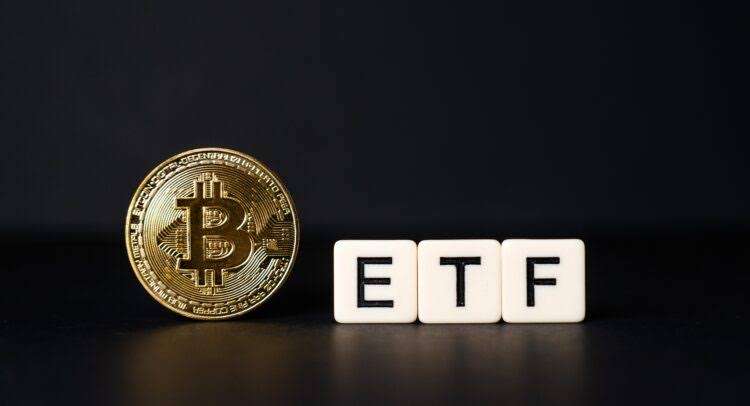
Bitcoin ETFs Decoding: Understanding Risks, Dynamics
The focus is on spot Bitcoin ETFs, detailing their operation, valuation replication, and the role of authorized participants.
There has been considerable discourse within the finance community regarding Bitcoin exchange-traded funds (ETFs) since the Securities and Exchange Commission (SEC) granted authorization for their trading.
However, it is critical to keep in mind that there are inherent hazards associated with investing in exchange-traded funds (ETFs). A comprehensive overview of Bitcoin exchange-traded funds (ETFs) is provided here, as many investors are enthusiastic about trading their capital.
Comparing Bitcoin and Bitcoin ETFs: What is the distinction?
A crucial distinction exists between Bitcoin and Bitcoin exchange-traded funds (ETFs). Let us deconstruct each term to attain a more comprehensive understanding of it.
To put it briefly, bitcoin is a digital currency that operates on the principle of computer-solved mathematical equations to generate new currency units and maintain a ledger of transactions.
A purported trading venue for bitcoins that are converted to currency is referred to as the “spot” market. While there are a few notable exceptions, the spot market for Bitcoin is not under the jurisdiction of the SEC or CFTC.
SEC regulation applies to investment firms, whereas exchange-traded funds (ETFs) do not. The securities constituted by the shares issued by the exchange-traded fund (ETF) necessitate SEC registration.
ETFs, similar to mutual funds, are managed by proficient money managers to help them achieve their predetermined investment objectives.
Spot Bitcoin ETFs facilitates the rapid purchase of Bitcoin by pooling investors’ capital. A management contract oversees a Bitcoin exchange-traded fund (ETF) publicly traded on a conventional stock exchange.
How Does One Invest in an ETF?
Spot ETFs are Bitcoin ETFs that hold bitcoins in a digital repository through the services of registered custodians. The primary aim of this category of exchange-traded fund (ETF) within the cryptocurrency market is to replicate the valuation of bitcoins.
To commence operations, the exchange-traded fund (ETF) will purchase bitcoins from other investors or authorized cryptocurrency exchanges. After procuring the tokens, they are typically safeguarded in a digital wallet with multiple protection tiers.
Subsequently, the issuance of shares by the exchange-traded fund (ETF) will be proportional to the total quantity of bitcoins in its possession. The pricing of exchange-traded fund (ETF) shares ought to mirror the prevailing market price of a cryptocurrency, and these shares ought to be accessible for trading by the general public.
Consequently, the exchange-traded fund (ETF) endeavors to faithfully replicate the bitcoin valuation through its shares. The ETF makes periodic adjustments to its holdings by purchasing or selling tokens.
Authorized participants, or APs, manage every process, including redemption and creation. In response to market demand, major financial institutions commonly issue or redeem exchange-traded fund (ETF) shares. If ETF shares are trading at a premium or discount, the APs will generate or save enormous blocks of ETF shares.
It is crucial to bear in mind, before investing in Bitcoin exchange-traded funds (ETFs), that the trading activity, price, and availability of these assets are contingent upon many factors.
Before investing in exchange-traded funds (ETFs), the volatility of cryptocurrencies is the most crucial consideration. The prices of cryptocurrencies and exchange-traded funds (ETFs) are remarkably comparable.
Therefore, exchange-traded funds (ETFs) are susceptible to uncertainty arising from even the most minute degree of volatility in the price of digital assets.
While the utilization of spot Bitcoin ETFs may help you save time and money compared to conducting your own Bitcoin exchange and protection, these ETFs do charge expense ratios or management fees to cover operational expenses, which ultimately diminish returns.
Additionally, Bitcoin transactions are not subject to the oversight of any governmental agency. The precise approach to addressing risks such as fraud, manipulation, and asset loss remains somewhat ambiguous.
The markets will remain vulnerable to the risks associated with insufficient regulation until more stringent supervision and restrictions are imposed.





